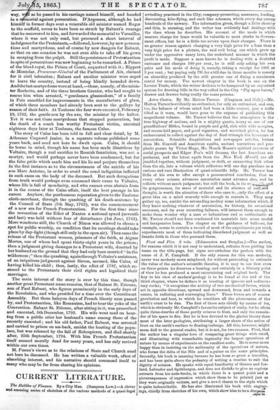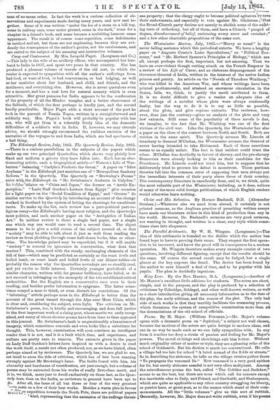marriages. of view he has produced a most entertaining and
original book. The key to his view of moderifgeology is to be found at the end of tho The main interest of the story is over by this time, though third chapter, where he defines it as treating of igneous and sedimen- another great Protestant name remains, that of Rabaut St. Etienne, tarp rocks; "it recognizes the activity of two mechanical forces, which son of Paul Rabaut, who figures prominently in the early days of act in opposite directions, upward and downward, from and towards a the Revolution, and who presided for a time over the Constituent centre, in radiating and converging lines." These forces are of course Assembly. But those halcyon days of French liberty soon passed gravitation and heat, to which he considers all the phenomena of the by, and Protestantism, like Romanism, had to bear the yoke of the earth's crust to be due. The first of these acts chiefly by means of ice, Convention. Rabaut St. Etienne, after sitting in it, was proscribed which is obviously Mr. Campbell's favourite subject of study, for he allots and executed, 5th December, 1792. His wife went mad on hear- quite three-fourths of these portly octavos to frost, and only the remain- ing from a public crier her husband's name among those of the der of his space to fire. But he is less devoted to the glacier theory than recently executed ; and his old father, Paul Rabaut, was arrested most of the later geologists, attributing a larger share of the action of and carried to prison on ass-back, amidst the hooting of the popu- frost on the earth's surface to floating icebergs. All this, however, might lace, but was released by the fall of Robespierre, and died shortly seem dull to the general reader, but it is not, for two reasons. First, that after, 25th September, 1794. With him French Protestantism the author has a singular love of comparing great things with small, itself seemed morally dead for many years, and has only revived and illustrating with remarkable ingenuity the largest operations of within our own times. nature by means of experiments on the smallest scale. He is never more M. Puaux's views as to the relations of State and Church need happy than in insisting on the uniformity of the operations of nature, who forms the delta of the Nile and of a gutter on the same principles. not here be discussed. He has written a valuable work, often of Secondly, his book is amusing because he has been so groat a traveller, absorbing interest, and his narrative should commend itself to and has been quite above the pedantry of writing a treatise to suit the land, Labrador and Spitzbergen, and does not disdain to give us copious URE. extracts from his note-books, in which there is a quaint point and a
CURRENT LITE RATTJRE.
picturesqueness of expression which show them to be printed just as
—4.-- they were originally written, and give a novel charm to the style which 27,e Bubbles of Finance. By a City Man. (Sampson Low.)—A. clever is quite indescribable. He has also illustrated his book with engraAvy
..sses la man of no mean order. In fact the work is a curious collection of ob- servations and experiments made during many years, and now cast to- gether. Some of it was written "under the lee of a stone on a hill top, some in railway cars, some under ground, some in the dark," some for a chapter in a friend's book, and some because a scribbling humour came uppermost. The result is of course some repetition, some deficiencies in method and art, but these are not nnpleasing, because they are evi- dently the consequence of the author's genius, not his carelessness, and are suited to the subject of his amusing and instructive volumes.































 Previous page
Previous page